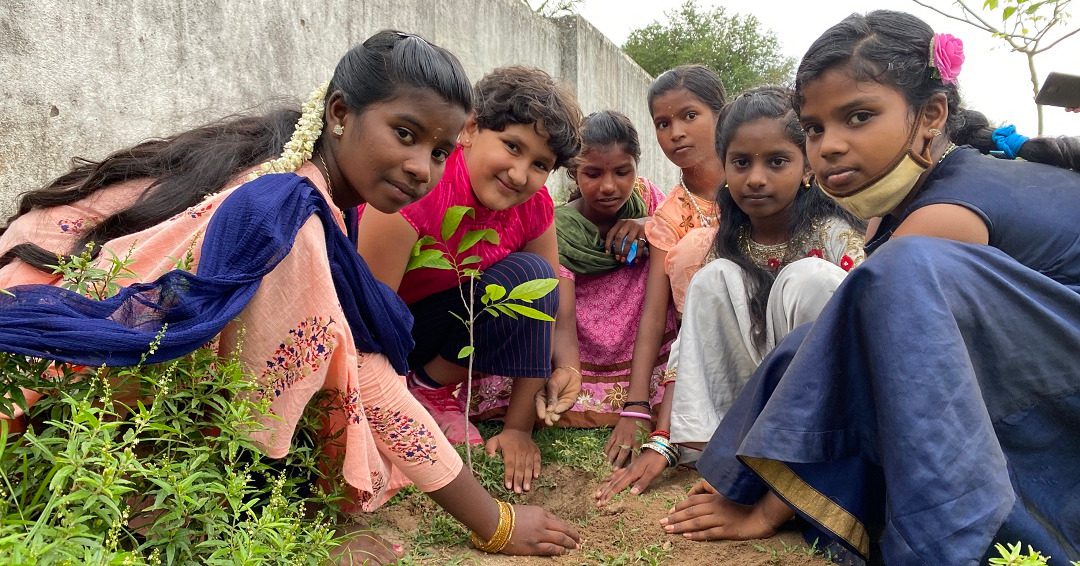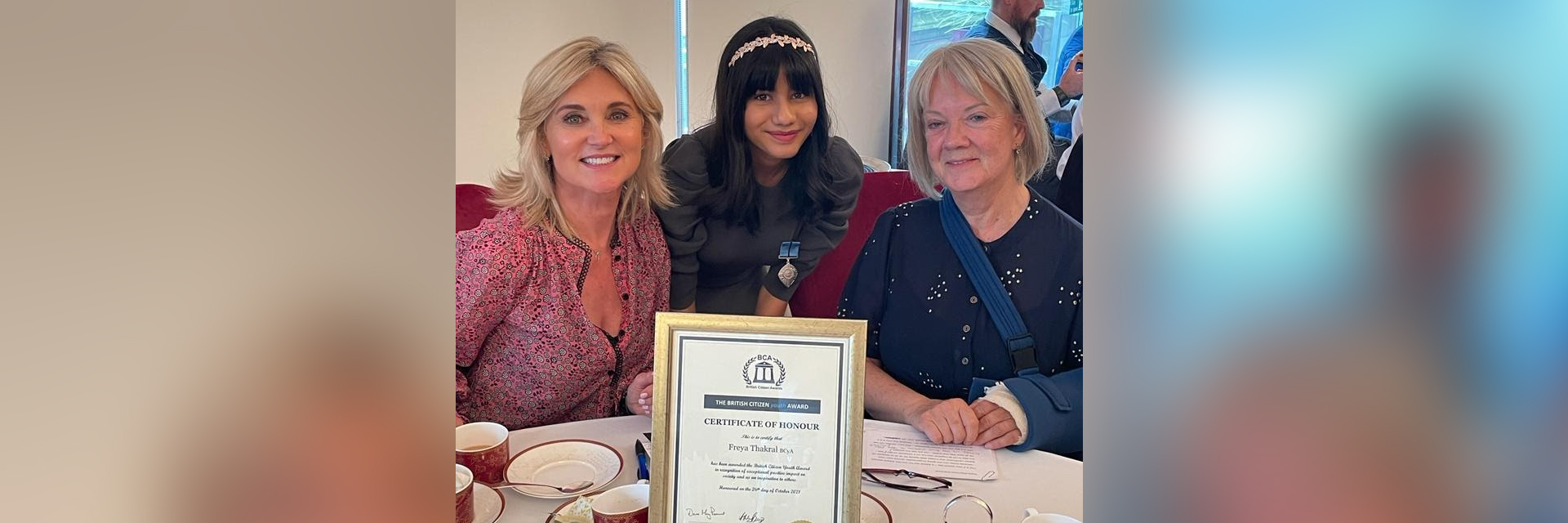(February 18, 2022) As he stood before the chopping board at New York City’s famed Eleven Madison Park, all set to start cutting, Chef Neel Kajale found himself face to face with an angry sous chef. “I simply couldn’t understand why he was upset,” he said. Neel was even more mystified when the sous chef then adjusted the cutting board. “He told me that everything has to be perpendicular and parallel. My cutting board was not in line with my workstation. I was at Eleven Madison Park. Everything had to be perfect,” said Chef Neel explained. When you’re working with the world’s most celebrated chefs, every detail needs to be perfect.
The Michelin experience
By the age of 25, Chef Neel Kajale has done quite the tour of world-famous, Michelin-Starred restaurants and their chefs. After graduating from the Institute of Hotel Management, he worked with Chef Atul Kochhar, of Benaras fame, joining the team as they began NRI in Mumbai. He has also worked at The Bombay Canteen and Farzi Cafe before setting off to study at the Culinary Institute of America in New York City, where Eleven Madison Park would come calling. Today, he has moved away from the high-glamour, high-stress restaurant life and works at a test kitchen, creating content and exploring a space that to him, feels like home.
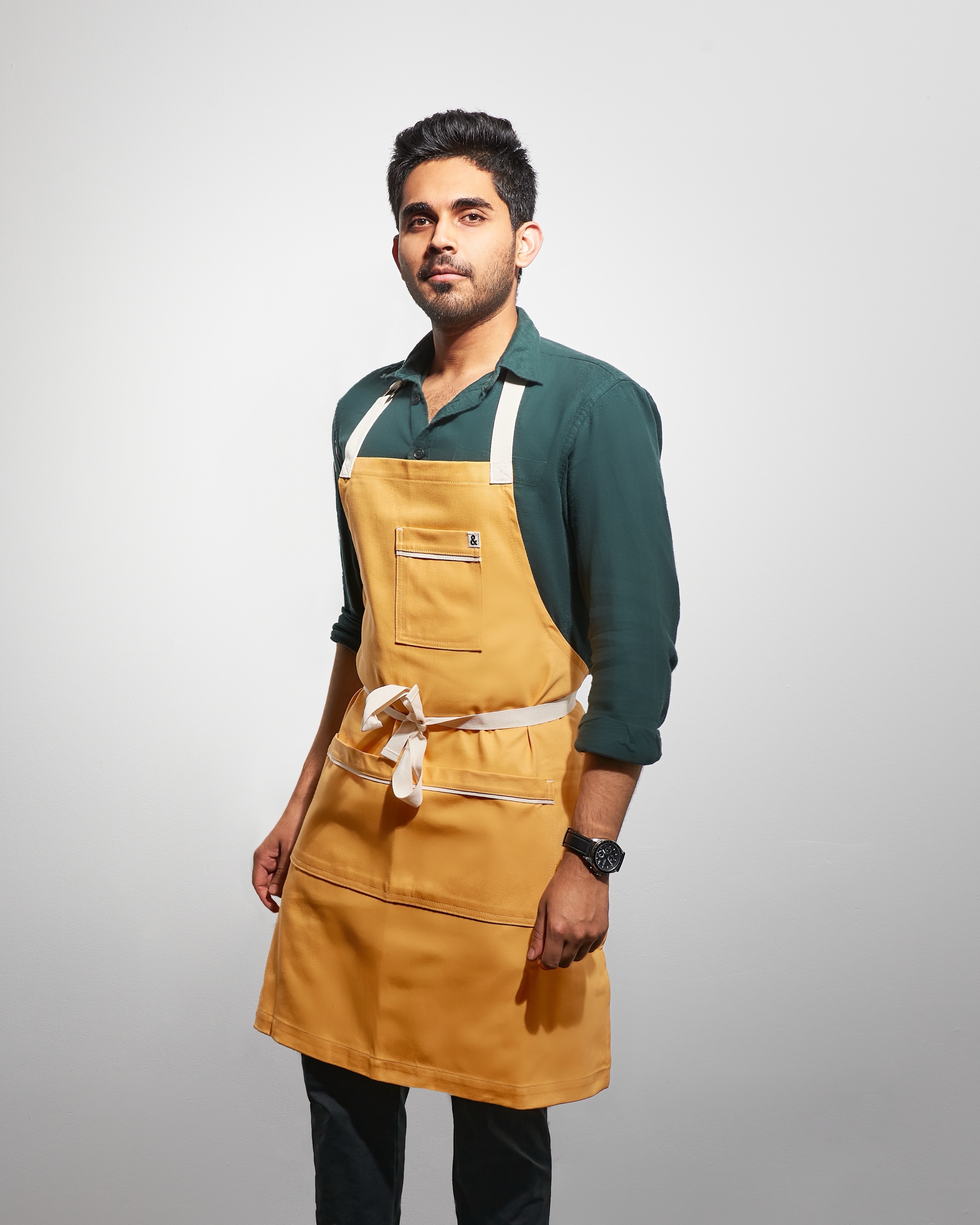
Chef Neel Kajale
When food is what you aspire for
At 13, the Mumbaikar knew he wanted to be a chef. He loved food, disliked maths, so the choice was simple. “There was no point in struggling with something I had no talent for. What I did have, however, was a passion for food,” recalls Neel. Encouraged by his parents, he leaped headlong. “I had no backup plans. It was a do-or-die situation for me,” adds the 25-year-old.
MasterChef piqued his interest, and he was hooked. “As an Indian, it was a revelation to see what could be done with food. Here, we didn’t think about plating food or about Michelin stars. I wanted to know what is happening in the world of food,” explains Neel who was blown away by the culinary revolutions in France, Italy, Germany, and Spain.
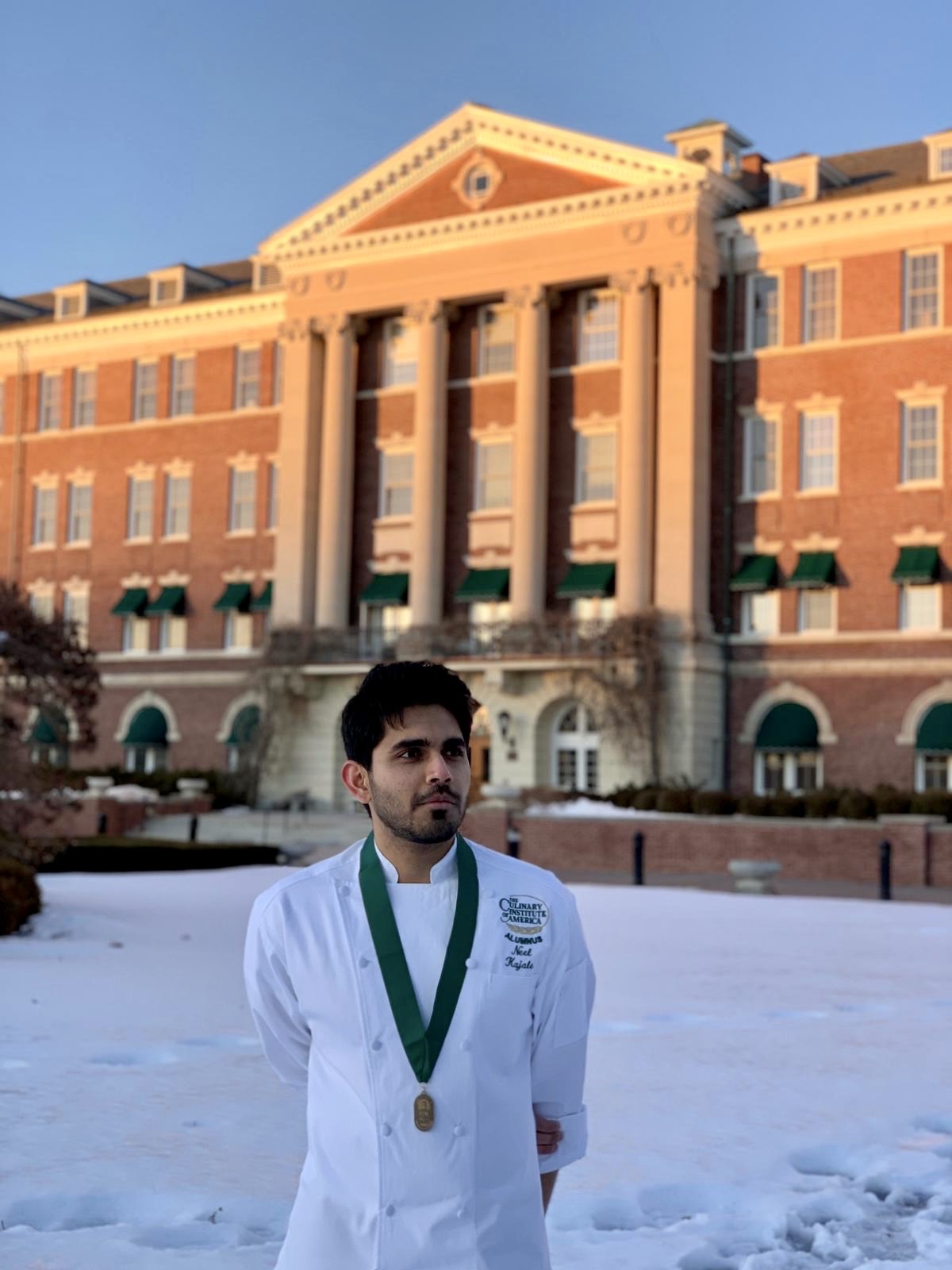

New York Minute
In June 2021, Eleven Madison Park re-opened its doors to guests – even on opening night (after the pandemic), the three Michelin-starred restaurants had a waiting list of around 15,000. And Neel was at the heart of plating, cooking and more. Celebrities streamed in – Angelina Jolie, Jake Gyllenhaal, Chipotle founder Steve Ells, etc. For Kajale, however, accustomed as he was to celeb-spotting, Angelina Jolie was a revelation. “You feel good because they’re so mesmerized by what you’re doing,” he recalls, adding, “Rightly so because the food is phenomenal but it’s so stressful that after a point, you start saying, it’s just food, not rocket science.”
Plating up aging beets and mustard leaf kimchi, or learning a thing or two about chef-owner Daniel Humm’s famed dry-aged duck breast – it’s the sort of experience any young chef cherishes. Neel was no exception – with a combination of talent, dedication, and unshakeable grit. “You need to bring your A-game every day. If you want to excel at anything, you need to give it everything. The standards and expectations are so high,” he explains.
When a test kitchen turned food into learning
His days of exploring the fine dining experience, of plating herbs with tweezers are behind him for now. Except for the tweezers, which he carries around. “Since there were so many guest walk-ins at Eleven Madison, we couldn’t really do things with our hands. So, we used tweezers. Now – instead of plating herbs, I’m flipping phulkas at home!” smiles the chef who is reinventing his culinary repertoire.
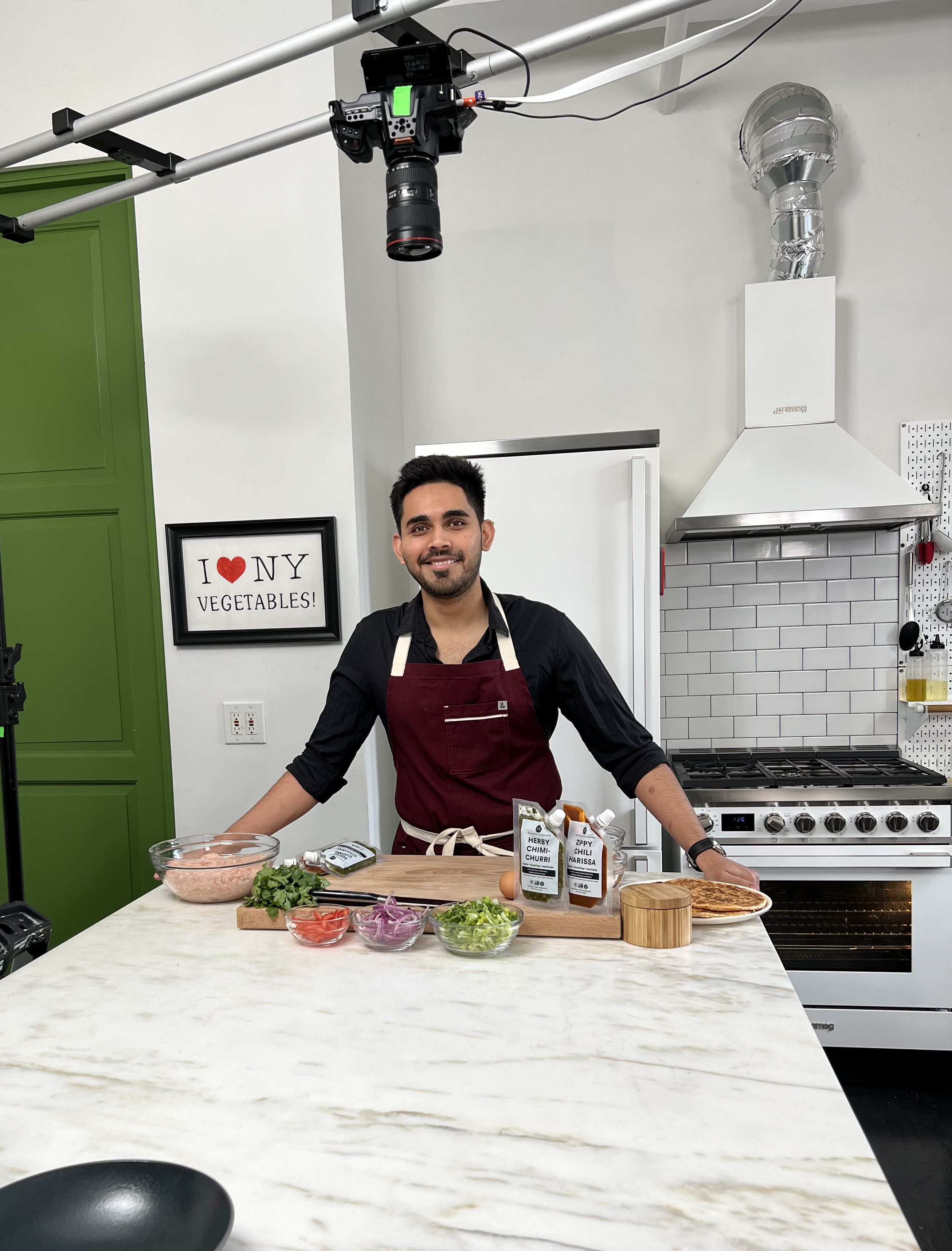

Chef Neel’s journey took him from Mumbai to Manhattan as he worked with some of the world’s best chefs
Today, Neel yearns for innovation, to find a bridge between food and media that India – and the world, haven’t seen before with his painstaking work at the test kitchen. Think Chef Sanjyot Keer, of Your Food Lab, or global superstars like Babish and Joshua Weissman. After decades of watching the most glamorous chefs plate up gourmet meals, Neel has found his calling at Haven’s Kitchen as test kitchen manager (New York). Diving deep into recipe development and content creation, his days are filled with ingredient-spotting and taste trails. These are then filmed to be shared with epicureans across platforms.
“If a tomato soup is trending on a rainy day, my job would be to use our sauces to make that soup. It’s a very different life from running a station and handling pressure. Here, you’re perfecting one thing, time and time again,” he adds. Not an easy job but one that has, as Neel puts it, brought him closer to food.
A few of his favourite things
Ask him what he truly loves to cook, pat comes the reply, “home food.” For Chef Neel, it’s the food that nourishes him. The welcome sound of a fragrant curry leaf popping in hot oil is his all-time best aroma. “It’s so special to Indian cooking. It’s something I absolutely love,” says Neel.
“What do I cook for myself? A dal chawal or roti sabzi.” His kitchen at his New York home is stocked with Indian ingredients and his mother, does, on occasion receive a call with a request, “How do you make your dal?” Not the restaurant-style dal tadka but “mum’s simple moong dal” is unmatched.
The young Indian chef is a music enthusiast and often strums the guitar. High on fitness and sports, a game of tennis is a welcome break, or it’s travel and good wine.


